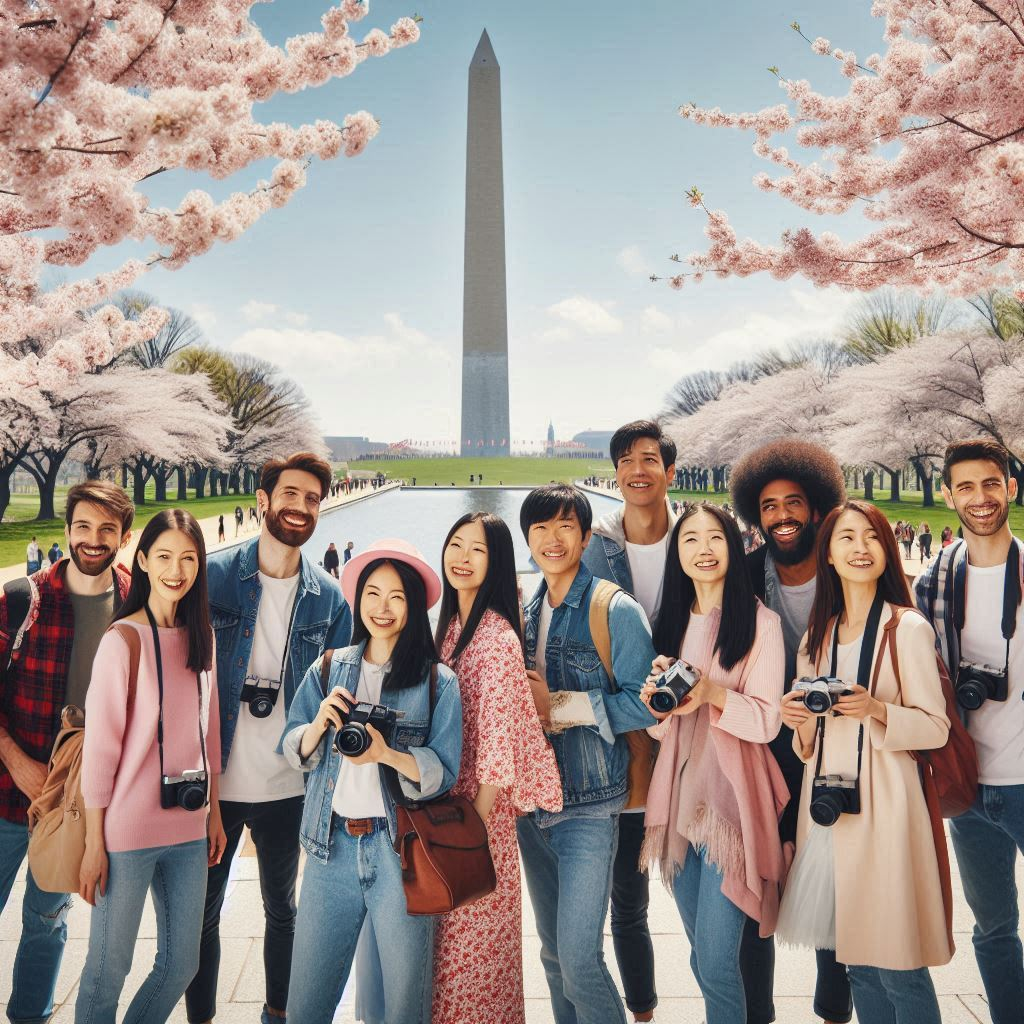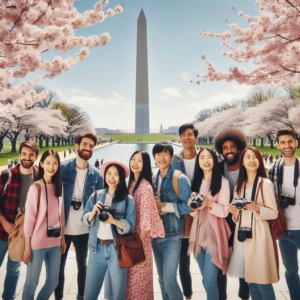Washington, D.C.: A Vibrant East Coast Destination
Introduction
Washington, D.C., with its marbled monuments and high-profile politicos, has long been known as a government-driven town. However, the city has transformed itself into an exciting, faster-paced East Coast vacation destination. Beyond the iconic landmarks, D.C. offers a thriving cultural scene, interesting neighborhoods, and a host of renowned museums.
Body Content
1. Types of Content
- Historical Attractions: Explore classic sites like the White House, the Washington Monument, the U.S. Capitol, and the Smithsonian National Museum of Natural History.
- Urban Adventures: Immerse yourself in the city’s youthful ambiance by visiting urban neighborhoods, marquee art galleries, and vibrant farmers markets.
2. Key Concepts
- Tidal Basin: Experience iconic D.C. with a stroll around the Tidal Basin, especially during the National Cherry Blossom Festival in late March or early April.
- Local Flavor: Discover D.C.’s culinary scene, from trendy cafes to upscale restaurants.
3. Importance
- Cultural Hub: D.C. has become a thriving cultural hub, attracting artists, foodies, and history enthusiasts.
- Political Center: As the nation’s capital, D.C. plays a crucial role in shaping policies and history.
4. Challenges and Opportunities
- Traffic: Navigating D.C.’s traffic can be challenging, but public transportation options are available.
- Cost of Living: D.C. can be expensive, but job opportunities abound.
5. Ethical Considerations
- Respecting Memorials: Show reverence at memorials and monuments.
- Cultural Sensitivity: Be mindful of diverse communities and their histories.
6. How to Find a Reliable Experience
- Local Recommendations: Ask locals for hidden gems and authentic experiences.
- Online Reviews: Check travel forums and social media for insights.
7. Regulations and Taxation
- Parking Regulations: Understand parking rules and fees.
- Sales Tax: Be aware of D.C.’s sales tax rates.
8. Recent Developments
- The Wharf: Explore this revitalized waterfront area with dining, shopping, and entertainment options.
9. Tips for Navigating
- Metro System: Use the efficient Metro system to get around.
- Walking Tours: Take guided walking tours to learn about the city’s history.
10. Top 10 Companies
- Company A: Leading tech firm specializing in cybersecurity.
- Company B: Innovative sustainable energy company.
Conclusion
Washington, D.C., offers a blend of history, culture, and modernity. Whether you’re a first-time visitor or a seasoned local, there’s always something new to discover. So, pack your bags and explore the heart of the nation!
FAQs
- What’s the best time to visit D.C.? Spring (during cherry blossom season) and fall are ideal.
- Where can I find the best local cuisine? Try the diverse food scene in Adams Morgan or Dupont Circle.
- Are there any free attractions? Yes, the National Mall and its monuments are free to explore.
People Reviews
- “D.C. exceeded my expectations! The museums are incredible.” – Sarah
- “The cherry blossoms are magical. Don’t miss them!” – Mark
Remember, this article is a snapshot of D.C.’s dynamic spirit – a city that balances tradition with innovation. 🌟
Feel free to adjust or expand upon any section to make it even more engaging for your readers! 😊
Certainly! Let’s delve into the tax implications when visiting Washington, D.C.:
Taxation in D.C.
-
Sales Tax:
- D.C. imposes a sales tax on most goods and services. The current sales tax rate is around 6%.
- Keep in mind that some items, such as groceries and prescription drugs, may be exempt from sales tax.
-
Hotel Tax:
- If you’re staying in a hotel, be aware of the hotel occupancy tax. It typically ranges from 10% to 14.5% of the room rate.
- Some hotels may also charge additional fees, such as resort fees or parking fees.
-
Restaurant Tax:
- When dining out, expect to pay a restaurant tax. This tax is usually around 10% of your bill.
- Note that gratuity (tip) is not included in the tax; it’s customary to leave an additional tip for good service.
-
Income Tax:
- If you’re a resident of D.C. or earn income within the city, you’ll need to file a D.C. income tax return.
- Non-residents who work in D.C. may also have tax obligations.
-
Property Tax:
- Property owners in D.C. pay property taxes based on the assessed value of their real estate.
- The rates vary depending on the property type and location.
-
Sales Tax Holidays:
- Occasionally, D.C. offers sales tax holidays where certain items (like school supplies or energy-efficient appliances) are temporarily exempt from sales tax.
Remember to consult official D.C. government resources or a tax professional for the most up-to-date and accurate information. Safe travels! 🌟
Certainly! Here are some frequently asked questions related to traveling in Washington, D.C.:
-
What’s the best time to visit D.C.?
- Spring (during cherry blossom season) and fall are ideal. The National Cherry Blossom Festival, usually held in late March or early April, is a must-see.
-
Where can I find the best local cuisine?
- Try the diverse food scene in neighborhoods like Adams Morgan or Dupont Circle. From food trucks to upscale restaurants, D.C. has something for every palate.
-
Are there any free attractions?
- Yes! The National Mall and its iconic monuments (like the Lincoln Memorial and the Washington Monument) are free to explore. Don’t miss them!
Feel free to explore these FAQs and plan your D.C. adventure accordingly! 🌟

